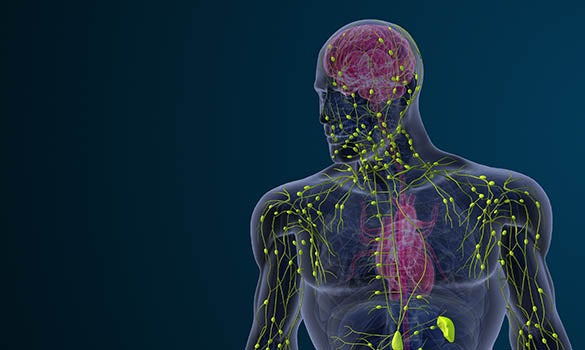
WHAT IS LYMPHOEDEMA?
Lymphoedema is a chronic condition characterised by the abnormal accumulation of lymphatic fluid leading to swelling, most commonly in the arms or legs. It can arise due to congenital factors (primary lymphoedema) or damage to the lymphatic system from surgery, radiation, infection, trauma (secondary lymphoedema) or even morbid obesity.
This condition is often overlooked yet profoundly impactful on patients’ quality of life.
General practitioners (GPs) play a crucial role in early identification, management and referral of lymphoedema patients to appropriate specialist care.
WHAT GPs SHOULD LOOK OUT FOR
Early recognition of lymphoedema significantly improves patient outcomes.
GPs should be vigilant for symptoms such as:
Persistent swelling, often in the extremities
A feeling of heaviness or tightness
Restricted range of motion
Recurrent infections or skin changes
A COMPREHENSIVE MANAGEMENT APPROACH
A comprehensive management approach for lymphoedema consists of:
1. Accurate diagnosis
Diagnostic tools such as lymphoscintigraphy, MRI or ultrasound are utilised to confirm lymphoedema and differentiate it from other causes of swelling. Other causes include vascular disease, renal disease and cardiovascular disease.
2. Patient education
GPs can educate patients on the importance of skin care, the signs of infection, and the need for regular monitoring of their condition. Small cuts or even insect bites can often lead to cellulitis and exacerbation of lymphoedema.
3. Having antibiotics on standby
Lymphoedema patients often develop cellulitis in their affected limbs, and having antibiotics on standby at home will allow them to initiate treatment earlier. This can prevent the worsening of disease and buy the patient time to seek help with their usual care provider.
4. Compression therapy
GPs can advocate for the use of compression garments which are fundamental in managing lymphoedema. Proper fitting and consistent use can prevent fluid accumulation and alleviate symptoms.
5. Manual lymphatic drainage (MLD)
GPs can refer patients to certified lymphoedema therapists for MLD, a specialised massage technique that promotes lymphatic flow and reduces swelling.
6. Surgery
Modern surgical techniques such as vascularised lymph node transfer (VLNT), lymphaticovenular anastomosis (LVA) and lymph node-vein anastamosis (LnVA) are methods that aim to restore the physiological flow of lymphatics, allowing the decompression of a water-logged limb. These surgeries have been shown to reduce the incidence of cellulitis and need for admissions in lymphoedema patients.
PREVENTION IN BREAST CANCER PATIENTS
At Sengkang General Hospital (SKH), a novel technique called the Distally-based Lymphatic Microsurgical Healing Approach (dLYMPHA) has been developed, that successfully reduces the risk of lymphoedema occurring in breast cancer patients.
Performing this lymphatic bypass at the same time as breast cancer surgery can prevent lymphatic fluid from getting trapped in the arm, hence decreasing the risk of developing lymphoedema.
WHEN GPs SHOULD REFER A PATIENT
GPs should refer patients to a specialised lymphoedema clinic if they exhibit:
Rapidly progressing swelling
Recurrent cellulitis or skin changes
Severe functional impairment
Lack of response to initial management strategies
Breast cancer patients who have axillary nodal disease
The SKH Lymphoedema Service
The SKH Lymphoedema Service is a signature service of SKH, offering streamlined one-stop, patient-centred care that serves the needs of patients with diseases related to the lymphatic system.
Patients are seen in multidisciplinary clinics, where they are evaluated by a team of specialists including a lymphatic specialist, physiotherapist and occupational therapist. Together, they create a holistic care plan that combines both medical and surgical treatments to best meet the individual needs of each patient.
CONDITIONS TREATED
The service treats all diseases related to the lymphatic system, including:
Breast cancer-related lymphoedema
Uro-gynaecological cancer-related lymphoedema
Skin cancer-related lymphoedema
Head and neck lymphoedema and chyle leak
Congenital lymphoedema
Post-infection lymphoedema
Post-traumatic lymphoedema
HOW GPs CAN REFER
To refer a patient, please contact the SKH Lymphoedema Service at:
Tel: 6930 6000
Monday - Friday (8:30am to 5:30pm)
Email: appointments@skh.com.sg
The SKH Lymphoedema Service is led by Dr Allen Wong, Consultant at the Plastic, Reconstructive and Aesthetic Surgery Service, SKH.













 Get it on Google Play
Get it on Google Play